Installation, enhanced with DIWO experiments, 2017-2019
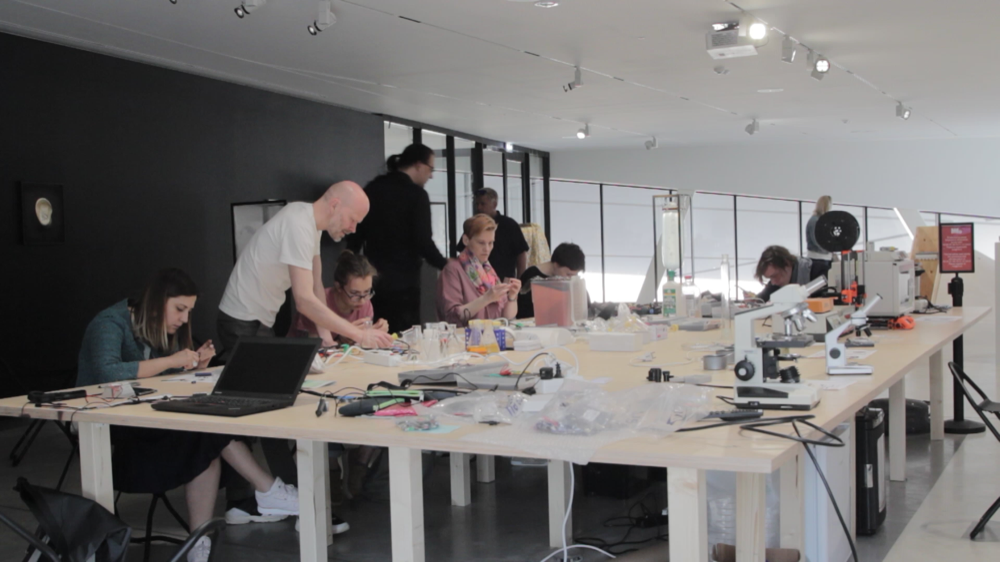
“Self-repair Lab” is an artistic installation and a collaborative framework for biological, chemical and geological experimentation. The installation resembles a DIY biological experiment laboratory, where artworks, lab equipment, people and events are brought together in order to understand and to reflect self-organization of the ecosystem, human-machine interaction, and up to date discourses. What could one do with the knowledge gained in collaboration with artists, scientists, and engineers? How one could “produce” new meanings in the collaborative setting? “Self-repair Lab” is also about acquiring knowledge and seeking of answers while making things. Having no access to science laboratory and scientists, but having access to kitchen tools and internet, one could aspire knowledge, which could help in solving tasks, especially those related to one’s health and the ecosystem.
Artistic Concept
“Self-repair” refers to an organism’s ability to identify and fix its own system. A well known self-surgery under “real-life conditions” was performed by Leonid Rogozov. In 1961, during his expedition to the Antarctic, which, at that time, was not really an inhabited place, Rogozov performed an appendectomy on himself. While humanity dreams about space travel, humans often neglect certain “what if?” questions: What if it is not possible to ask others for help, to fulfill one or another task? What if certain experimentation is restricted by law? What, in fact, is “law”? There are also other questions that arise, such as: How far can one experiment with one’s own body? Or, to whom do parts of one’s body belong if they are detached from the body? To put it simply, “self-repair” relates strongly to the adaptability required to live in a changing environment: when humans talk about evolution, they say that life has survived due to its ability to adapt to changing conditions (for example, Lynn Margulis’ theory of evolution). With the aim of “self-repair” being to adapt to present conditions, there is a need to reflect on developing technologies, scientific discoveries, and the changing understanding of humans as beings.
Acknowledgment
The project was kindly supported by the Nordic Culture Point and by the Lithuanian Council for Culture. My gratitude goes to collaborators of the project Julian Chollet, Juan Pablo Diaz, Wolfgang Spahn, Miglė Kalvaitytė, Auksė Gaižauskaitė, Martin Howse, Jan Georg Glöckner, and other collaborators, including dozens of participants.
Related Cases
Case #1. SCOBY, Shit and Humus
Case #2. I, Machine, and Energy Harvesting
Case #3. Lactose-Intolerance DNA Portraits
Case #4. Radio Mycelium & How I Hack Plant Conversations
Related Media
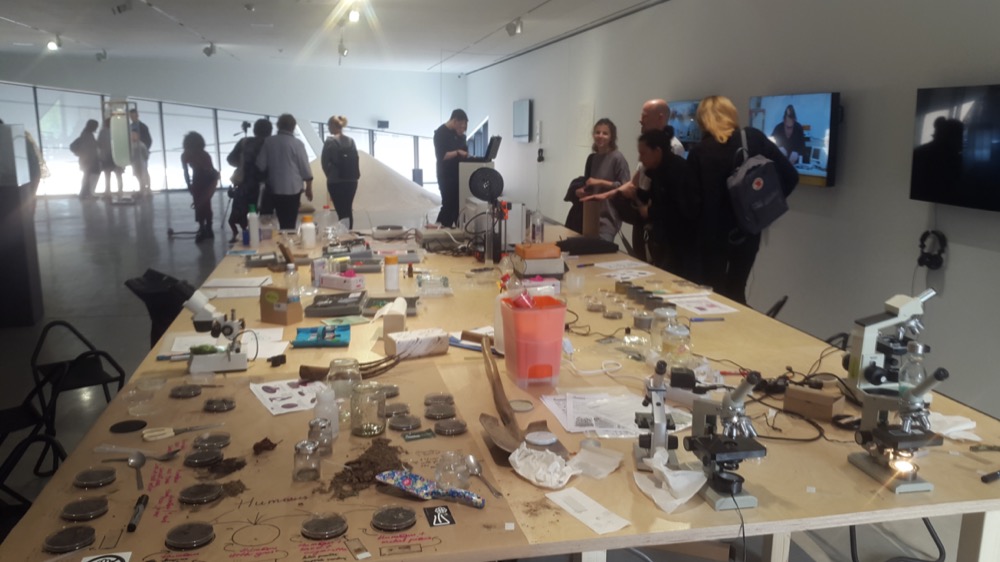

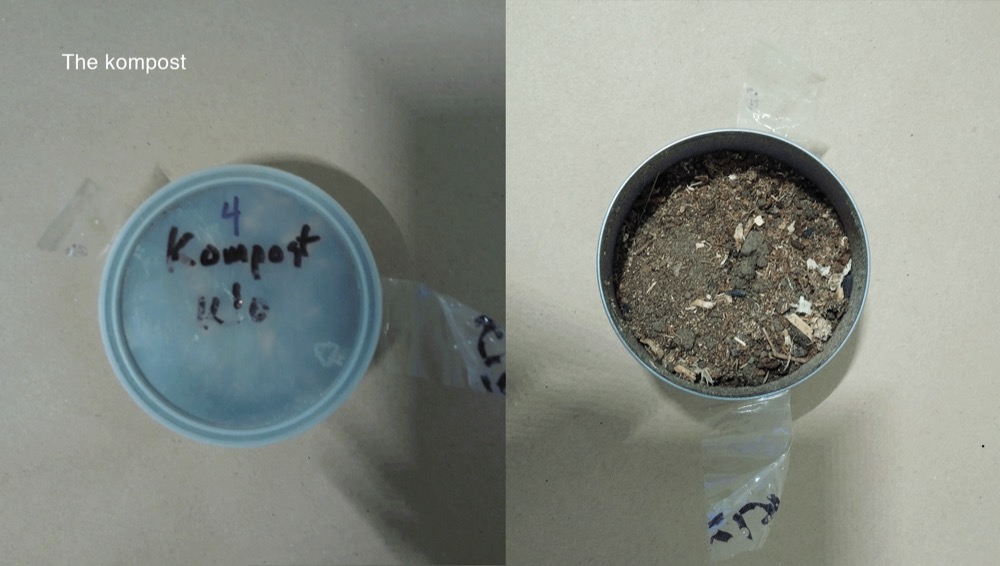
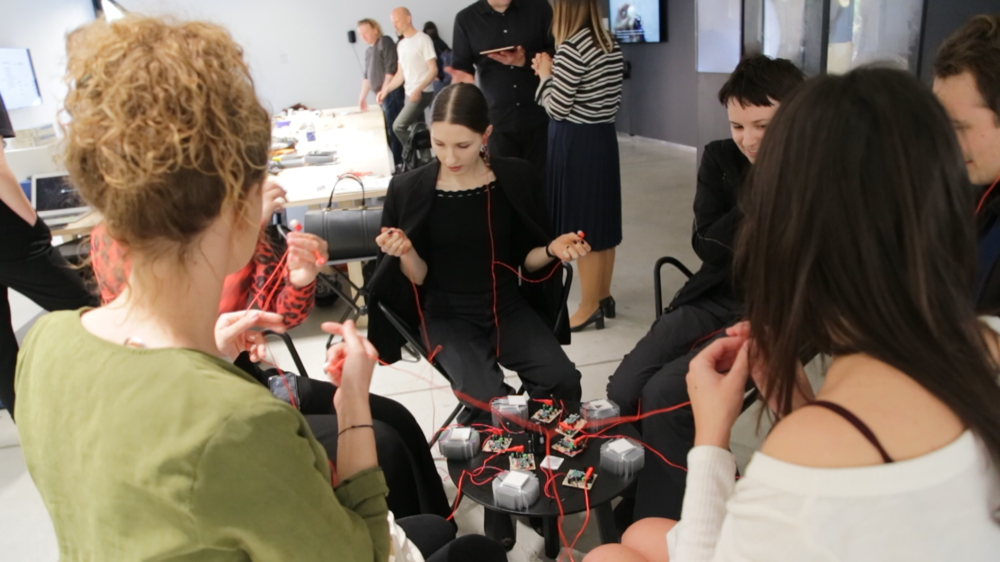
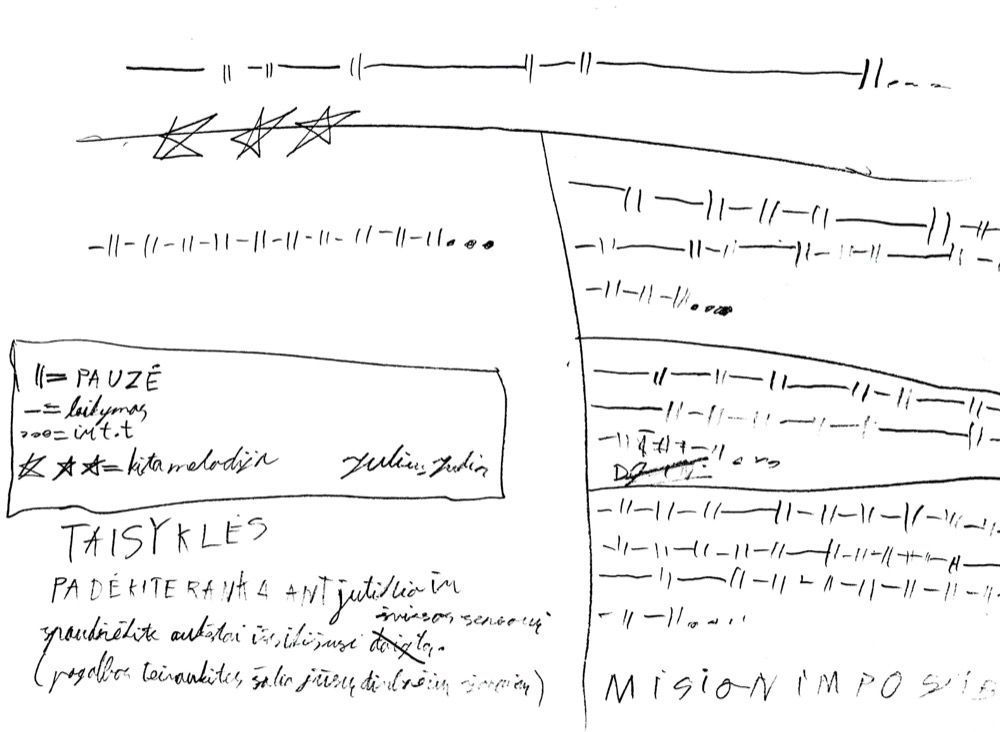
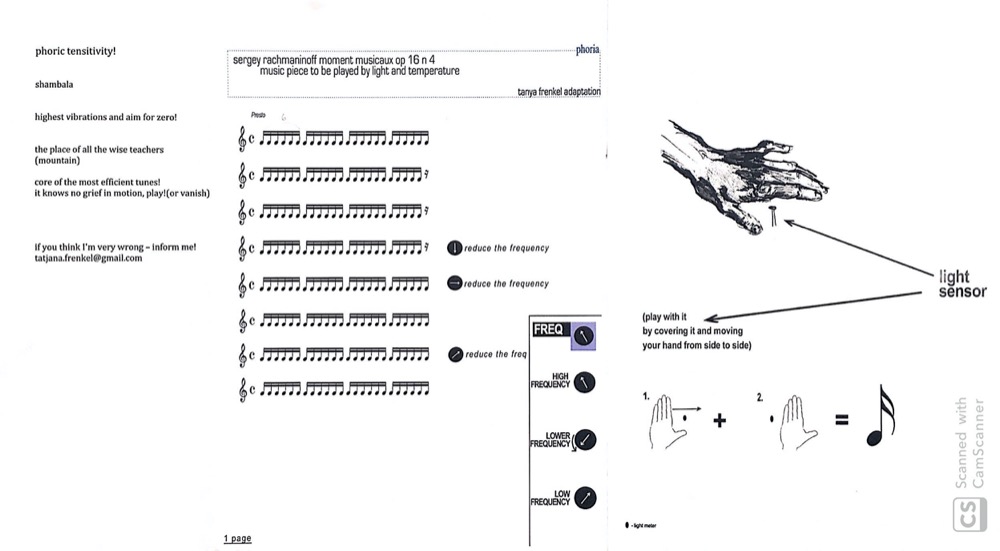
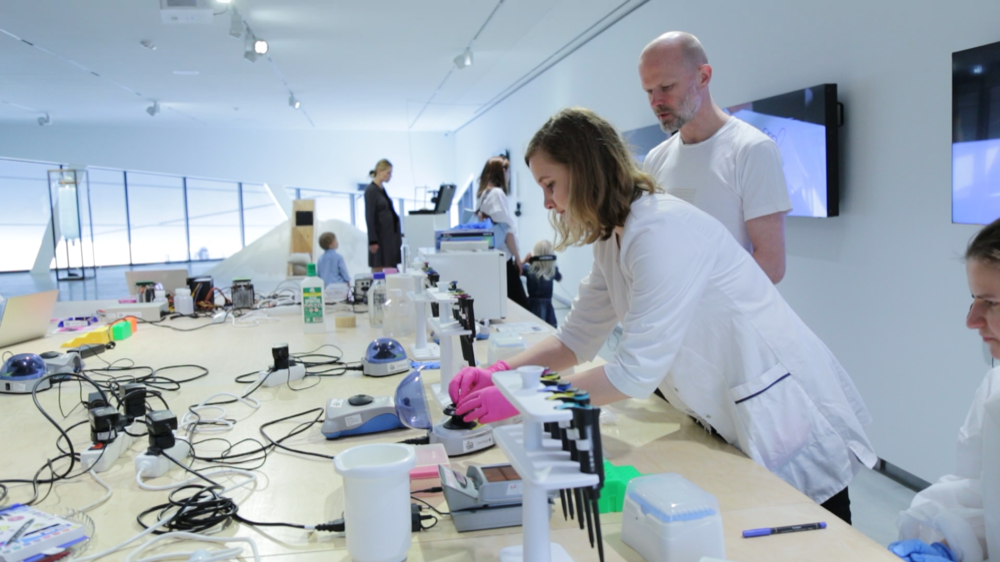
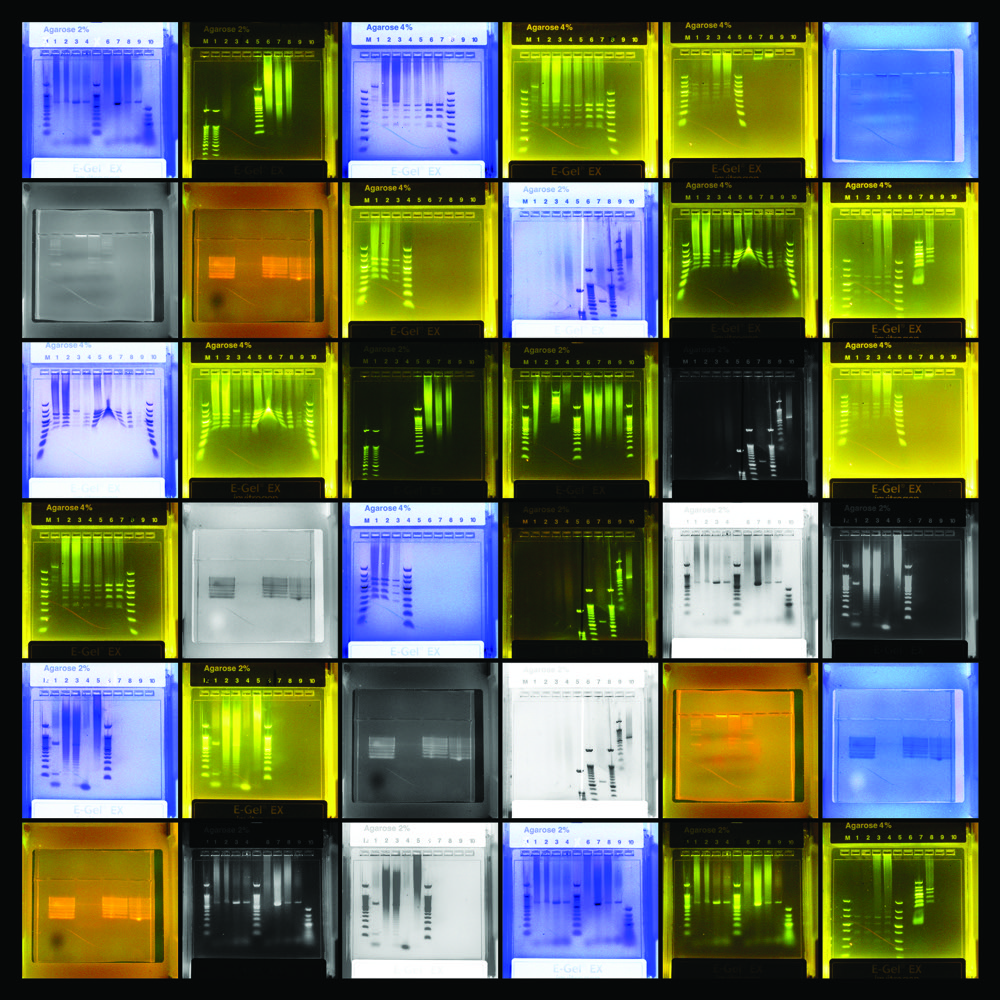
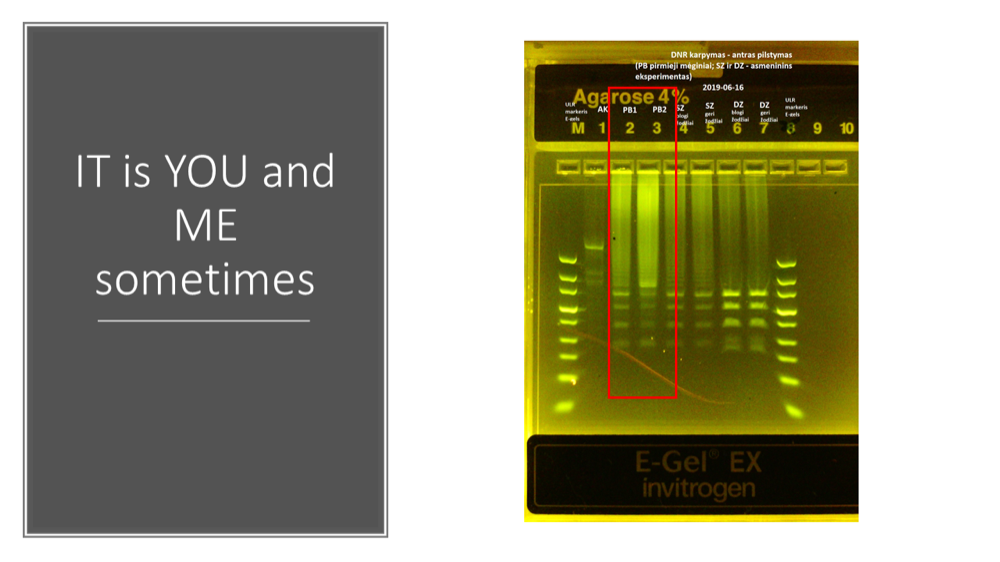
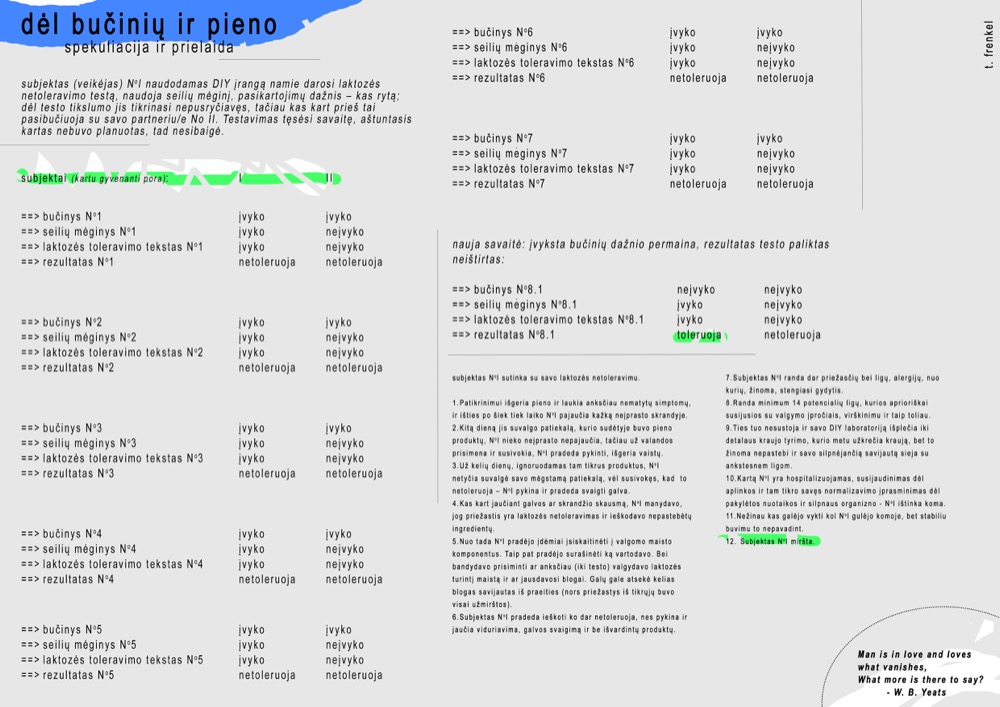
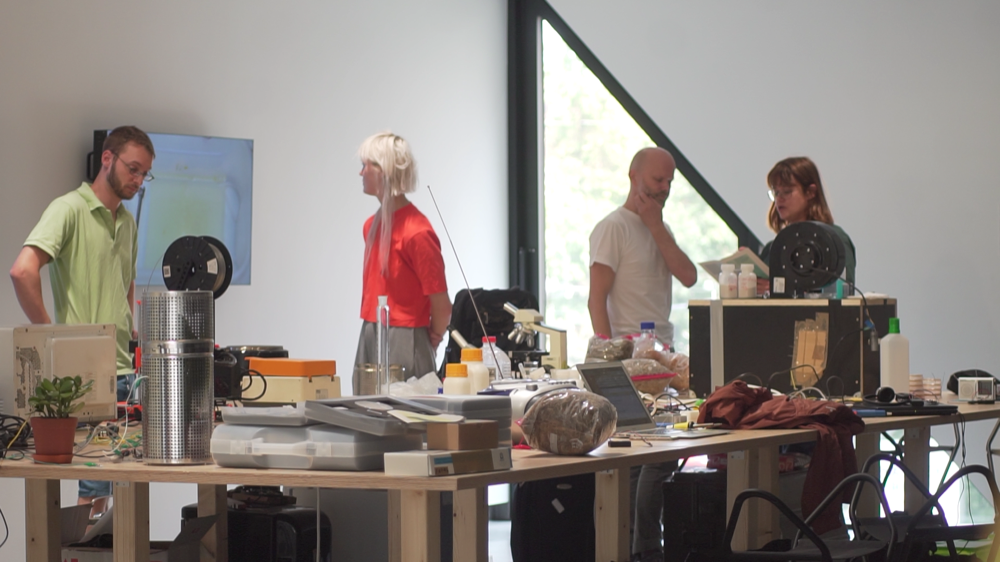
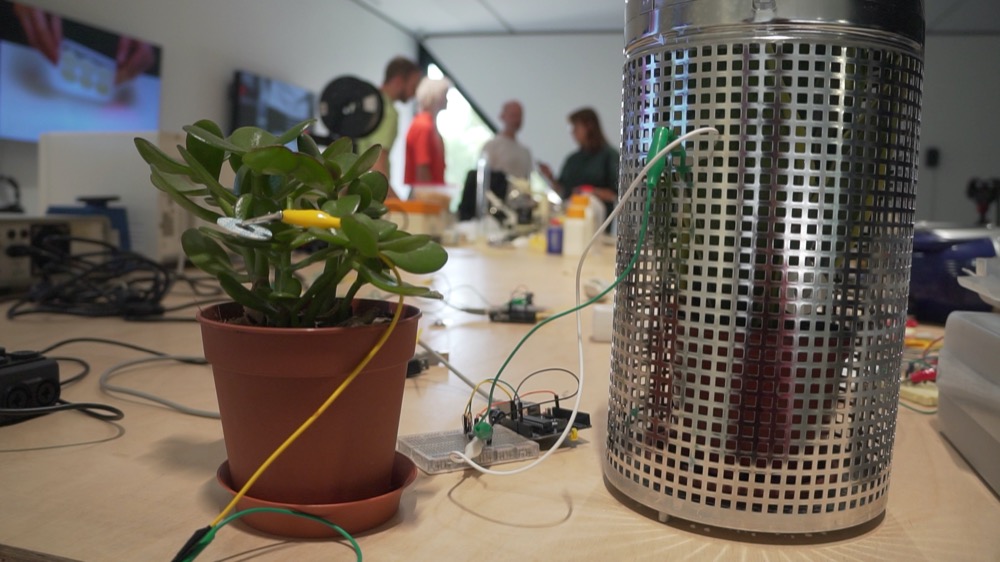
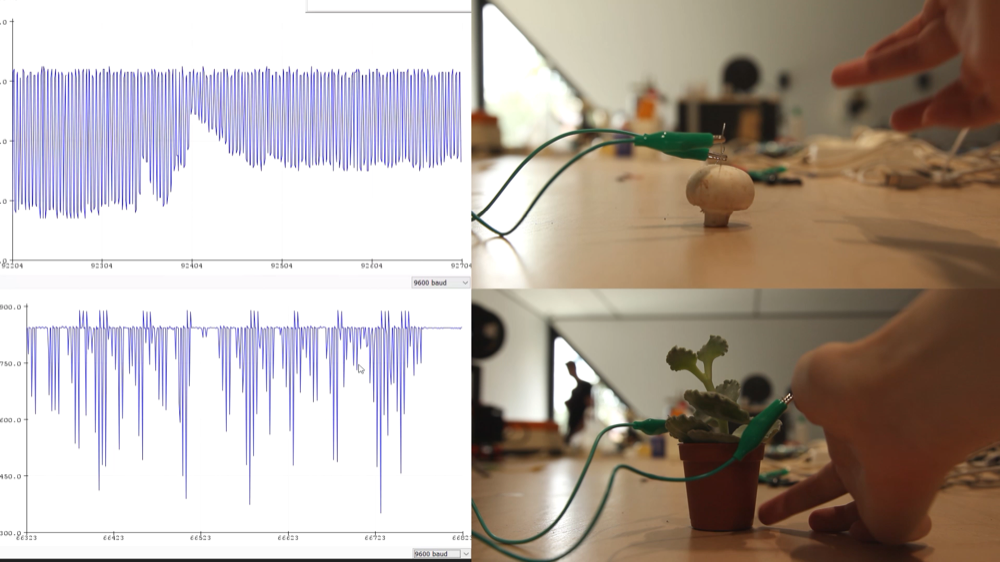
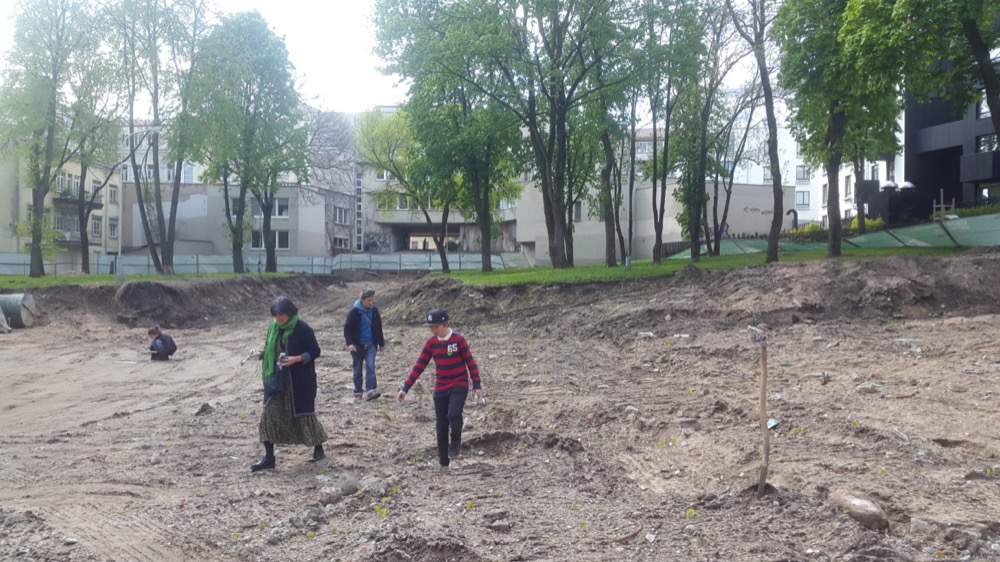
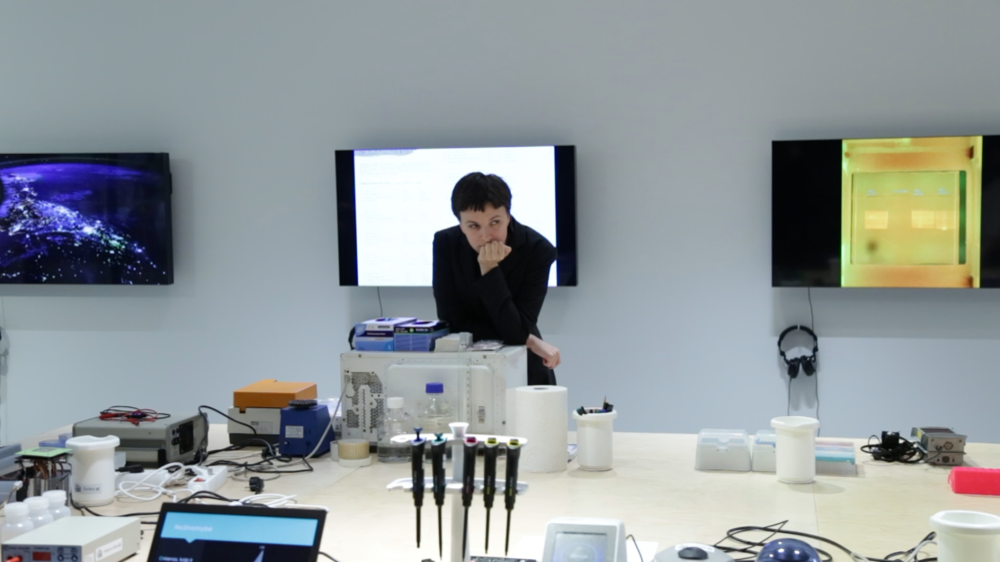
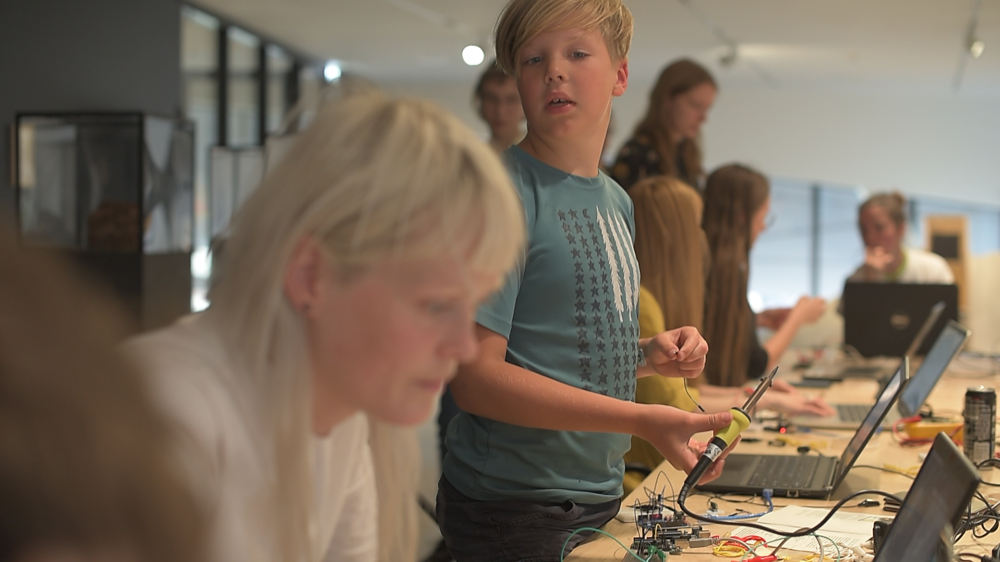
Related Posts
[display-posts category=”self-repair-lab” include_excerpt=”true” excerpt_more=”Continue Reading” excerpt_more_link=”true” image_size=”large” wrapper=”div” wrapper_class=”display-posts-listing image-top”]